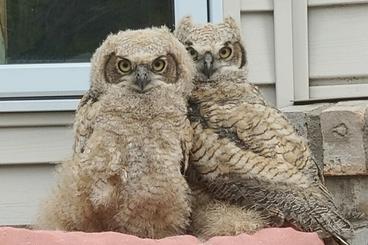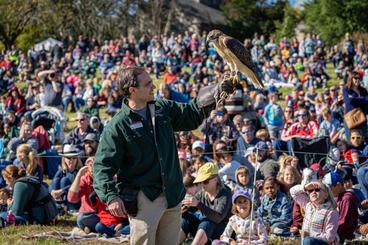The issue
‘One Health’ is an approach that integrates human, domestic and wild animal, and environmental health for the benefit of humans, animals and the world we share. This concept has existed for centuries but in our modern world, understanding these interdependencies has become more critical than ever for our collective health and safety.
Many factors have altered our interactions with other living things and our world. Factors such as: increasing human populations; closer contact with animals and their environments; changes in land use and climate; and, increased movement of people, animals, plants, and their products.
These altered interactions result in ‘One Health’ issues including: new and emerging diseases; antimicrobial resistance; reliability of our food supply; environmental contamination; and, other health threats shared by people, animals, and the environment.
What TRC is doing
Almost everything The Raptor Center does is related to One Health. We admit around 1,000 birds of prey annually. Raptors are biosentinels and information from these birds can extend our knowledge and understanding of the ‘One Health’ issues. The Raptor Center was also central to the creation of standardized terminology unique to wildlife rehabilitation. By collecting and sharing this data, we can better inform public policy and public health strategies.
Using The Raptor Center’s winged raptor ambassadors, we reach over 100,000 children and adults annually through live and digital educational programming. All of these presentations have conservation and educational messaging. These messages highlight the role we play in the health of raptors and our dependence upon healthy animals, plants, and environments. By protecting raptors and our shared world, we are helping to protect ourselves.

